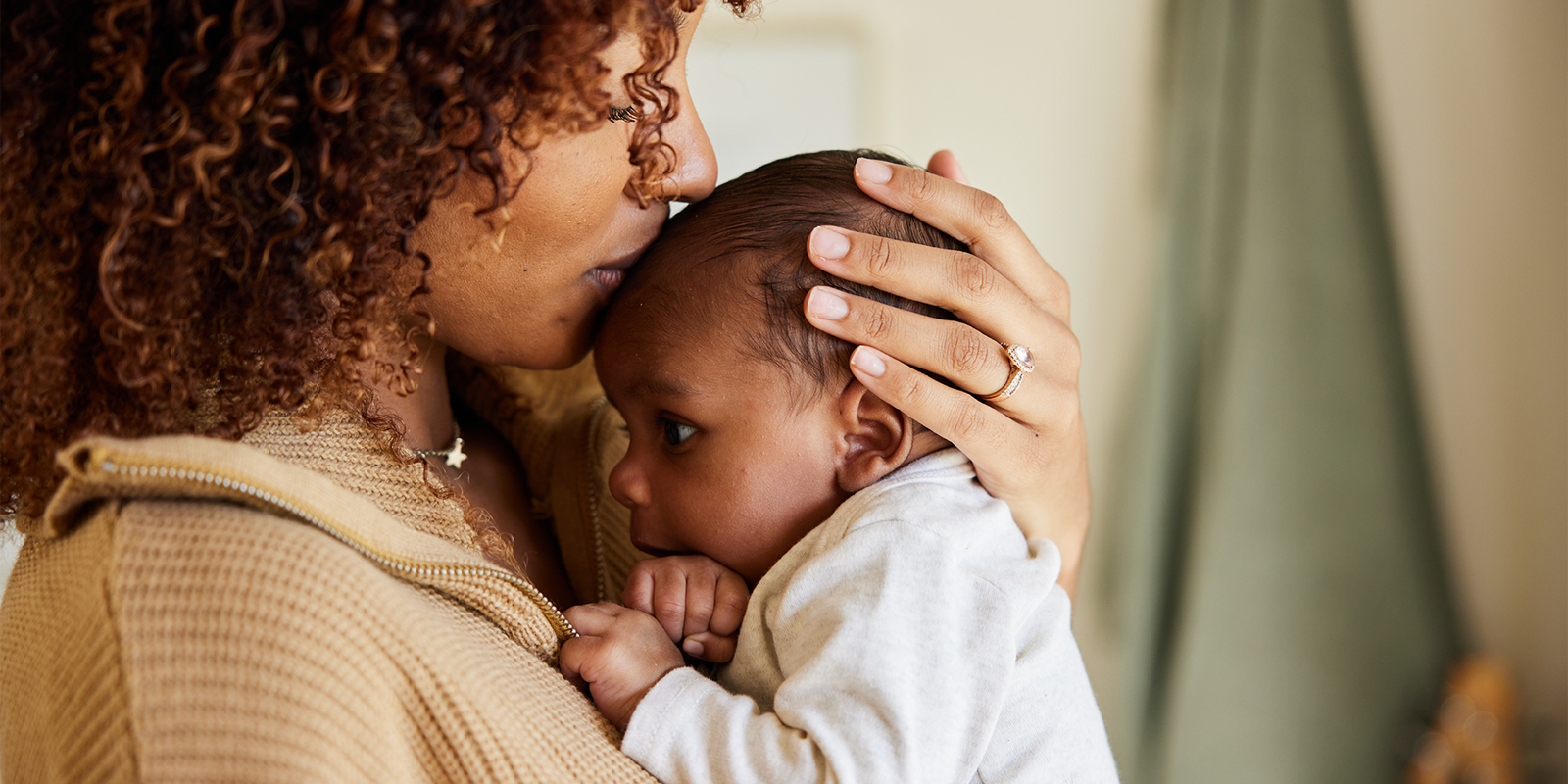Discover essential information on baby eczema, including its symptoms, causes, and best treatment practices. Get expert advice on soothing your baby's skin and managing this common condition effectively
Normal, dry to atopic skin
Reading time : 5 min

Discover essential information on baby eczema, including its symptoms, causes, and best treatment practices. Get expert advice on soothing your baby's skin and managing this common condition effectively
Baby eczema is a common skin condition that causes baby’s skin to become dry and itchy. Eczema is a chronic condition which often appears in the first six months of a baby but can be managed with several treatments.
Baby eczema is a condition that causes the skin to become red, itchy and inflamed.
There are several types of eczema and the most common in a baby are atopic dermatitis, seborrheic dermatitis which is also known as “cradle cap”, contact dermatitis and dyshidrotic eczema. Baby eczema often appears in the first six months to five years of a child.
The most common areas where eczema develops on baby are:
Face
Scalp
Feet
Arms
Legs
The main cause of baby eczema is still unknown but there are a variety of genetic and environmental factors that can trigger eczema in infants.
Skin irritants and allergens can be responsible for the appearance of the symptoms on your baby's skin. They often include fabrics, soaps and certain food.
Overreaction of the immune system is another cause of eczema.
Genetics is linked to eczema and if a family member has a history with eczema, the baby will be more likely to develop the condition.
Weak skin barriers will let the skin dry, and germs come in which can lead to eczema.
Heat and sweating worsen the symptoms especially when the air is dry.
Baby eczema affects around 15% to 20% of infants under the age 2 in the US.
The main cause of baby eczema is still unknown but there are a variety of genetic and environmental factors that can trigger eczema in infants.
Skin irritants and allergens can be responsible for the appearance of the symptoms on your baby's skin. They often include fabrics, soaps and certain food.
Overreaction of the immune system is another cause of eczema.
Genetics is linked to eczema and if a family member has a history with eczema, the baby will be more likely to develop the condition.
Weak skin barriers will let the skin dry, and germs come in which can lead to eczema.
Heat and sweating worsen the symptoms especially when the air is dry.
Baby eczema affects around 15% to 20% of infants under the age 2 in the US.
Teething is not responsible for eczema but because saliva wells up under the pacifier and irritates the skin, eczema often gets worse during teething.
Vitamin D can influence genes, and some research suggests that a lack of vitamin D in utero may predispose a person to develop eczema.
The most common food which may be responsible for eczema are:
Eggs
Milk
Peanuts
Allergies can occur to many other foods including wheat, fish, nuts, soya, lentils, strawberries and other fruits.
Baby eczema needs to be diagnosed by a dermatologist. The diagnosis includes a physical examination and can be followed by allergy tests, blood tests or a skin biopsy to determine what causes the symptoms.
Treatment varies for baby eczema depending on the causes responsible for the symptoms and their severity.
Treatment includes topical corticosteroids that you rub directly on the baby’s skin to reduce itching. In case of severe eczema, steroid ointments can be applied but no longer than two weeks.
Baby eczema often goes away by itself or with over-the-counter products but in some cases, prescribed treatment is necessary to help clear up the symptoms. Always check with your doctor if the symptoms worsen and pus-filled blisters appear on the skin. This may be a sign of infection that will require antibiotics.
Baby eczema can be prevented by following these easy tips:
Avoid triggers, irritants and allergens that have been identified as responsible for the appearance of the symptoms. If there is no contact with the agent responsible for eczema, symptoms will not appear again.
Use fragrance-free moisturizer designed for babies daily to avoid dry skin
Wash with lukewarm water between 5 to 10 minutes and avoid hot water and long bath
Use mild, fragrance-free soap to protect baby’s skin
Breast milk may help treat eczema symptoms according to recent studies. The probiotic properties of breast milk have a positive effect for people with eczema.
Baby eczema can go away by itself, and it does in many cases. It can take up to 2-4 weeks to heal with treatment.
In most cases, baby eczema clears up by the time school starts.
If the symptoms remain, you need to see a dermatologist to find out which treatment is necessary for more severe cases.
When the treatment is working, baby eczema symptoms clear up and the itching and rash disappear.
Scratching makes the rash worse and can lead to infection. It is important to try keeping your baby from scratching.
You can try some of the following tips to help relieve the itching feeling:
Soak the baby in a lukewarm bath and apply ointment
Trim the baby’s nails
Use long clothes to cover the hands if necessary
Whether it is for the day or during the night, it is important to choose light, breathable, and soft fabrics, such as cotton or silk for your baby. Itchy and tight clothes can irritate your baby’s skin and worsen eczema symptoms.